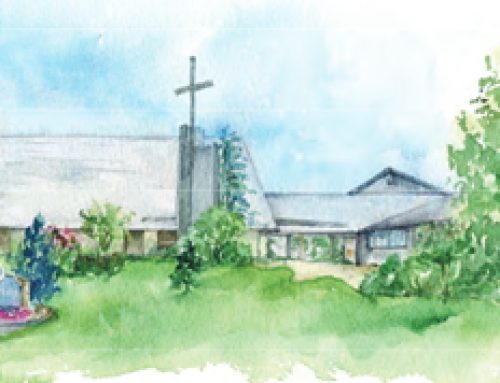FROM THE PASTOR’S DESK
Dear Parishioners,
A married couple was going through a rough time. In the process, they both said and did things that hurt one another deeply. But with patience and commitment, they worked things out, and began moving forward together. But not completely. One day the wife complained, “Why is it that you keep bringing up my past mistakes? I thought that you had forgiven and forgotten.” “I have forgiven and forgotten,” said the husband, “but I don’t want you to forget that I have forgiven and forgotten.”
When someone hurts us, it is very difficult to forgive and to forget. This is what makes today’s gospel so challenging. Jesus is relentless in his insistence that we do not forgive people once, or seven times, but seventy times seven times. And what are we to make of that strange violent verse that ends the gospel, where Jesus assures us that our heavenly Father will hand us over to the torturers unless we forgive our brothers and our sisters from our hearts? What is that about? Whatever happened to a compassionate and understanding God?
As strange as it may seem, that violent verse at the end of the gospel is the key to understanding the parable itself. For it is not telling us what God will do, but in fact what will happen to us if we do not forgive. If we refuse to forgive, we will live in torment, unless we change our minds. For the simple human truth is this: when we have been injured deeply, we can never recover until we forgive.
Now we should be clear on what forgiveness is and what it is not. Forgiveness is not pretending that everything is fine. It is not making an excuse for the person who offended us. It is certainly not putting ourselves back into the same situation where we can be hurt again. (In fact, in some cases, the best decision is to break off contact with the person who has hurt us.) But what forgiveness is, is realizing that we cannot change the past and refusing to let what we cannot change control us. Because if we refuse to forgive, if we choose to feed our hurt, that hurt can grow and deepen and compound with anger and hatred. That hurt will rule our lives and hold us captive.
This is an old truth. Centuries before the birth of Christ, the Greek play, Medea was written. In this drama Medea kills her own children to exact revenge on her husband, who committed adultery. When her husband asks her, how could she kill her own flesh and blood just to spite him, Medea calmly answers, “Because I hate you more than I love them.” Feeding a hurt creates a monster, a monster that can destroy us. The only way to slay that monster is forgiveness.
This is an important truth to remember as we celebrated the anniversary of 9/11 on Monday of this past week.
We remembered the tragedy of that event, the heroism of those who tried to save others, and the grief of the families that lost loved ones. But even in the immensity of that tragedy, we as Christians are still called to forgive. Forgiveness does not mean that we make excuses for the evil that was done. It certainly does not mean that we relax our vigilance to protect ourselves in the future. We are called to forgive the terrorists, not because they deserve it, but because we need it. For if we try to build a future based on hatred and revenge, we will become what we hate. Mahatma Gandhi, a man who knew much about humanity and world relations, once said, “If we base our relationships to one another on revenge, if we deal with one another based upon ‘an eye for an eye,’ soon the whole world will be blind.”
Jesus is not being cruel in today’s gospel. He is warning us about a hard truth. Feeding a hurt will destroy us. What happens in our life is not always fair; it is not always right. But if we want to be free, if we want to be at peace, if we want to live, we must forgive our brothers and sisters from our hearts.
Peace,
Fr. Monteleone
To read the complete bulletin click here



